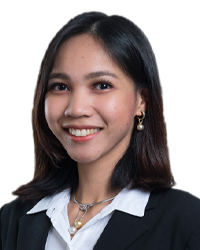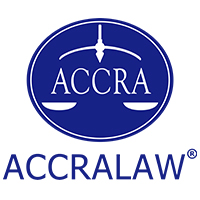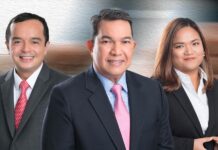Legal matters often arise in the ever-evolving landscape of public discourse. However, there is often a delicate balance to be struck between permitting free speech and affecting ongoing judicial proceedings under the sub judice rule.
At its core, the sub judice rule serves as a safeguard against external influences that could compromise the integrity of legal proceedings. It prohibits individuals from making statements that could influence the court or prejudice the case. By imposing these limitations, the rule aims to ensure that judgments are based solely on the evidence presented in court, free from external pressures or biases. A violation of this rule is punishable as indirect contempt under the Rules of Court.

Associate
ACCRALAW
Legal precedents provide valuable insights into the application of this rule. In the case of In re Kelly (GR No. 11715, 21 December 1916), the accused published a defamatory letter in a newspaper during the pendency of the retrial of his contempt conviction, which slandered judges who ruled against him. The Supreme Court held that such publication was deemed misbehaviour that tended to obstruct the administration of justice, punishable with the inherent contempt power of courts.
Similarly, in In re De Vera (AM No. 01-12-03-SC, 29 July 2002), a lawyer faced contempt charges for his published statement asking the court to dispel rumours that it will vote against the constitutionality of the plunder law in relation to a pending case, and risk another series of mass actions. The Supreme Court held that his utterances could not be construed as falling within the ambit of constitutionally protected speech because such statements were not fair criticisms, but obviously threats to force the court to rule in a specific manner.
In Marantan v Diokno (GR No. 205956, 12 February 2014), ABS-CBN aired the interview of the respondent-lawyer and the families of the victims in a pending case. The Supreme Court held that there was no violation of the sub judice rule as the respondents did not comment or make disclosures regarding the merits of the case, but only expressed their opinion, which did not appear to attack or insult the dignity of the court. The Supreme Court ruled that the mere restatement of their arguments in their submissions before the court could not, or did not even tend to, influence the court.
Guided by these cases, the Supreme Court, in ABS-CBN Corporation v Ampatuan (GR No. 227004, 25 April 2023), categorised the participants in legal proceedings into distinct classes, each subject to varying levels of restriction on their speech.
Litigants and their counsel, being in closest proximity to the courts as parties in judicial proceedings, are subject to the greatest restriction because they voluntarily agree to abide by the Rules of Court and the decorum required in judicial proceedings. Thus, additional rules are imposed on their speech.
Firstly, lawyers are able to criticise the courts. However, the exercise of their freedom of speech as citizens is burdened by their responsibilities as officers of the court. Their criticism must be legitimate and must support the administration of justice. Secondly, counsel are responsible for advising their clients that in choosing the court’s forum, they are not allowed to attack the integrity of the courts unless they have actual proof that can sustain a disciplinary action.
Thirdly, as some cases are more public than others, owing to the public interest involved, a fair and true reporting of a matter relating to a pending case will not amount to a violation of the sub judice rule. However, lawyers should also explain the arguments of the other party to give the public a balanced understanding of the case, without editorialising. The Supreme Court likewise stressed that comments or predictions as to how the courts will rule are not allowed.
Lawyers, as officers of the court, bear a significant responsibility in upholding the integrity of legal proceedings. The Code of Professional Responsibility and Accountability underscores their obligation to refrain from public commentary that could sway public perception or impede the court’s decision-making process. In their public commentaries, specifically public discourse in relation to cases of other lawyers, they must be careful not to exceed the limits of fair comment and criticism. They cannot give an opinion on the services given by other lawyers in representing their clients, as part of their duty to give courtesy, fairness and candour to their colleagues.
In a world where information flows freely, the responsibility to uphold the integrity of legal proceedings rests on all participants. By adhering to the Supreme Court’s guidelines and exercising prudence in their public speech, litigants, counsel and lawyers in general can ensure that justice is served without prejudice or interference.
Ge-An Kathleena Salud is an associate at ACCRALAW in Manila

22nd to 26th Floors, ACCRALAW Tower, Second Avenue corner
30th Street, Crescent Park West, Bonifacio Global City
Taguig, Metro Manila, Philippines
www.accralaw.com
Contact details:
Tel: +63 2 8830 8000 loc 8130
Email: gksalud@accralaw.com



























